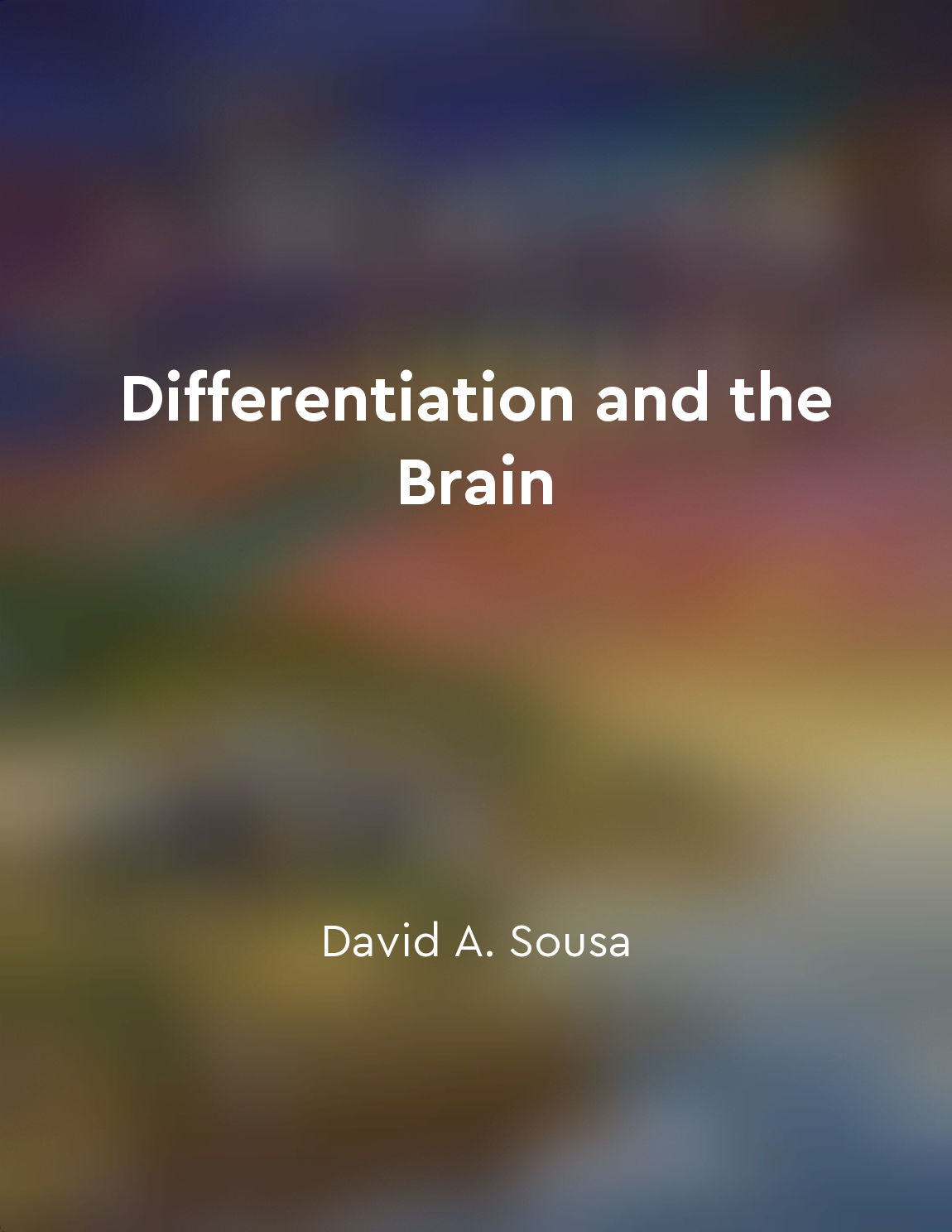Brain research can guide teachers in designing effective instructional practices from "summary" of Differentiation and the Brain by David A. Sousa,Carol A. Tomlinson
Brain research provides valuable insights that can help teachers enhance their instructional practices. By understanding how the brain learns, teachers can design lessons that are more engaging and effective for all students. For example, research has shown that the brain is more likely to remember information that is presented in a meaningful and relevant way. This means that teachers can improve student learning by connecting new information to students' prior knowledge and real-life experiences. Additionally, brain research has revealed the importance of creating a positive and supportive learning environment. When students feel safe, valued, and respected in the classroom, their brains are more open to learning. Teachers can use this knowledge to establish strong relationships with their students, provide frequent feedback, and create opportunities for collaboration and social interaction. Furthermore, brain research has highlighted the importance of addressing students' diverse learning needs. Every brain is unique, and each student has different strengths, challenges, and preferences when it comes to learning. By using strategies such as differentiation, teachers can tailor their instruction to meet the individual needs of all students. This can involve providing multiple ways for students to access and demonstrate their understanding of the material, as well as offering support and enrichment opportunities based on students' abilities and interests.- Brain research offers valuable insights that can guide teachers in designing more effective instructional practices. By applying this knowledge in the classroom, teachers can create a learning environment that is engaging, supportive, and responsive to the diverse needs of all students. Ultimately, by incorporating brain-based strategies into their teaching, teachers can help all students reach their full potential and achieve academic success.


